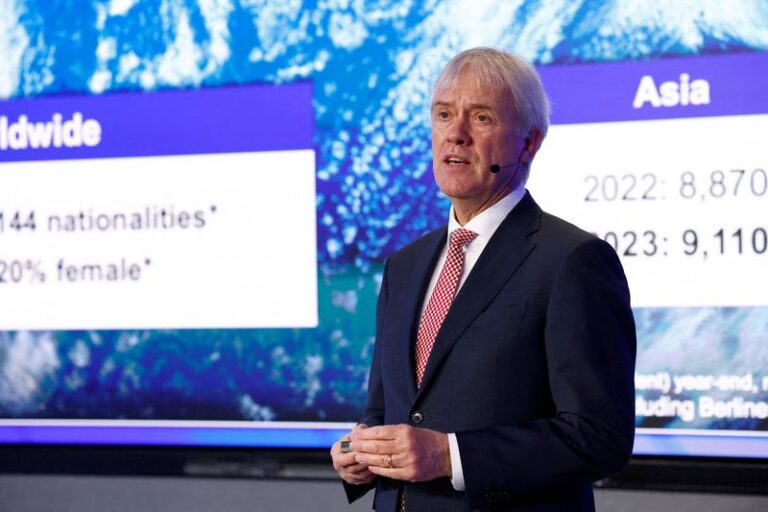AMSTERDAM (Reuters) – The recently retired chief executive of semiconductor equipment maker ASML said on Saturday in an interview with Dutch radio station BNR that the conflict between the United States and China over computer chips was ideological and not based on fact and would continue.
Wenink stepped down in April after a decade in which he built ASML into Europe’s largest technology company. Since 2018, the United States has imposed increasing restrictions on the equipment the company can export to China, its second-largest market after Taiwan, citing security concerns. Most recently, the U.S. has asked the company not to repair equipment it has already sold to Chinese customers.
“These debates are not based on facts, content, figures and data, but on ideology,” Wennink said.
“You’re free to think what you want about it, but in our business we have to balance the interests of our stakeholders. When an ideology directly contradicts that, I have a problem.”
He said the company has had customers and employees in China for 30 years, “so we have an obligation.”
As part of that balancing act, Wennink said he lobbied where possible to avoid making export controls too strict, while at the same time complaining to senior Chinese politicians when he felt the company’s intellectual property was not being respected.
“I think there was some thought in Washington at times that Wennink might be a friend of China,” he said.
“No. I am a friend of my customers, suppliers, employees and shareholders.”
He predicted that the semiconductor wars could take decades to end, given the geopolitical interests at stake.
“This is going to continue for some time,” he said.
(Reporting by Toby Sterling; Editing by Toby Chopra)

